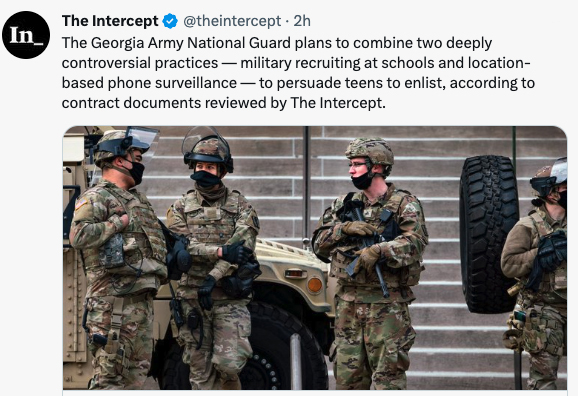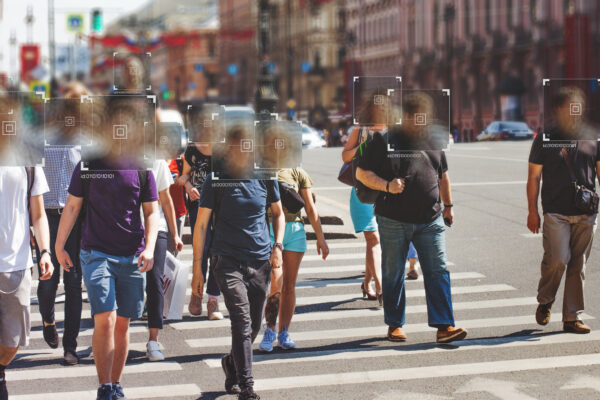ACLU of Georgia Policy Counsel Ben Lynde was quoted in a revealing investigative report published this weekend by The Intercept that shows the Georgia Army National Guard plans to combine two deeply controversial practices — military recruiting at schools and location-based phone surveillance — to persuade teens to enlist.
Federal contract materials obtained by nonprofit news organization outline plans by the state’s component of the Guard to geofence 67 different public high schools across Georgia, targeting phones found within a one-mile boundary of their campuses with recruiting advertisements.
Geofencing, which is currently being used by corporations to track personal data and by law enforcement to search for and locate unknown numbers of people, is an invasive surveillance technique that wields GPS or other tech to create a virtual geographic boundary, enabling software to trigger a response when a mobile device enters or leaves a particular area. The complex technology underpinning a practice like geofencing can obscure what it’s really accomplishing, said Lynde.
“I think we have to start putting electronic surveillance in the context of what we would accept if it weren’t electronic … If there were military recruiters taking pictures of students and trying to identify them that way, parents wouldn’t think that conduct is acceptable,” he said.
As pointed out by our colleague in the article, we believe there are no state laws constraining geofence surveillance. Additionally, Georgia has no protections in place for the collection and use of Georgians’ biometric info, the unique physical traits that make each of us unique – fingerprints, retinas, and facial structures, to name a few. We’re currently working with lawmakers to pass the Biometric Information Protection Act (BIPA) and ensure biometric privacy.
Read the full article here.




